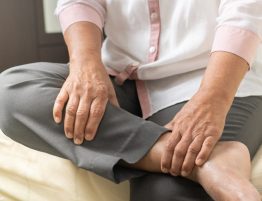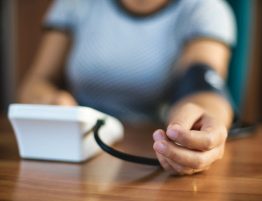
Slowing down too much during off-work hours may raise a younger adult’s chances of having a stroke, a new study says.
Researchers reviewed Canadian health and lifestyle records to examine the effect of sedentary activity – which includes using the computer, watching TV or reading – during people’s non-work hours, or leisure time.
Among adults younger than 60, the least active group – people who reported eight or more hours of sedentary leisure time a day and low physical activity – had a seven times higher risk of stroke than the most active group. Those were people who reported less than four hours of sedentary time a day and higher physical activity. The findings appeared Thursday in the American Heart Association journal Stroke.
Sedentary time is increasing in the United States and Canada, said the study’s lead author Dr. Raed A. Joundi, a stroke fellow in the department of clinical neurosciences at the Cumming School of Medicine at the University of Calgary in Canada’s Alberta province. “It is important to understand whether high amounts of sedentary time can lead to stroke in young individuals, as a stroke can cause premature death or significantly impair function and quality of life.”
The researchers reviewed health and lifestyle information for 143,000 adults in the Canadian Community Health Survey. None of the participants had previously reported stroke, heart disease or cancer.
During the follow-up period that averaged a decade, hospital records showed nearly 3,000 strokes. Most were ischemic, which happen when a vessel supplying blood to the brain is obstructed.
People were divided into four categories based on how much time they spent each day in sedentary leisure activities. The average time among all participants was slightly more than four hours.
Researchers also divided physical activity into categories, where “low” was equivalent to going for a walk for 10 minutes or less daily.
“A walk of 10 minutes or less per day is lower than half of what the American Heart Association’s physical activity guidelines recommend,” Joundi said. The AHA recommends adults get at least 150 minutes of moderate-intensity physical activity a week.
“Physical activity has a very important role in that it reduces the actual time spent sedentary,” Joundi said.
Because participants were not asked about work-related sedentary time – which the researchers said is likely higher among younger people – the findings did not account for that.
According to AHA statistics, deaths from stroke appear to be on the rise in people 35 to 64 years old. Joundi said physician recommendations and public health policies should emphasize increased physical activity and lower sedentary time among younger adults, in combination with other healthy habits.
If you have questions or comments about this story, please email editor@heart.org.






